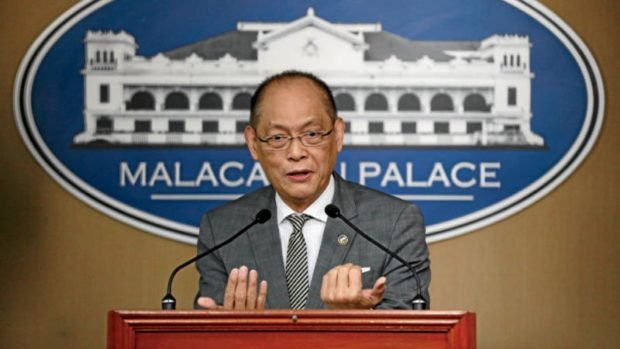Benjamin Diokno: Digital shift for wider financial inclusion, better tax take

Finance Secretary Benjamin Diokno Benjamin E. Diokno. (File photo from the Philippine Daily Inquirer)
MANILA, Philippines—The Marcos administration will embark on a big digitalization push to widen the financial inclusion net as well as improve tax administration, its chief economic manager said on Thursday (July 28).
“Building a more robust digital finance infrastructure is critical for broad-based economic growth. To strengthen the pillars of support for the digital economy, the Marcos administration is committed to establishing the right policy environment, to pursue technological innovations that that build new industries, enhance public service delivery, and create employment and investment opportunities,” Finance Secretary Benjamin Diokno said in his keynote speech at the Inquirer Project Webinar.
Diokno said Marcos’ eight-point socioeconomic agenda included action plans to expand the country’s digital infrastructure in the next six years. It also aimed to promote innovation, as well as research and development (R&D), the finance chief added.
Diokno noted that the COVID-19 pandemic accelerated digitalization, especially in the economy. “The rapid adoption of digital payments has facilitated the growth of e-commerce and propelled the shift to a more ‘cash-lite’ economy. Not only did innovative businesses survive, but they emerged stronger and took part in shaping the new economy we see unfolding today,” he said.
“The government will also take advantage of existing game-changing reforms to widen the space for investments that are consistent with the fourth industrial revolution,” Diokno said.
Moving forward, Diokno said digitalization will be tapped for greater financial inclusion.
“Increased participation in the formal financial system is critical in deepening our financial and capital markets, growing consumer confidence, and extending products and services to previously underserved markets,” the finance chief said.
Wider financial inclusion will be done by fast-tracking the distribution of Philippine IDs (PhilIDs), Diokno said.
The Philippine Statistics Authority (PSA) seeks to issue a total of 50 million PhilID cards this year, which was one of Marcos’ orders during his State of the Nation Address (Sona) last Monday (July 25).
The PSA plans to deliver 30 million physical cards as well as 20 million digital PhilIDs in 2022. “The digital PhilID is part of the proactive strategy of the Philippine Identification System (PhilSys), true to its purpose as a digital ID system. It will allow registrants to have their digital PhilID printed, downloaded, or generated in the mobile app for their use while waiting for their physical IDs,” the PSA said in a statement last Tuesday (July 26).
The PSA said the printable digital ID will be pilot tested during the second half of 2022, for roll out in October. The mobile version will be made available before this year ends.
“The PSA will still continue to prioritize low-income individuals as we roll out the printable version of the digital ID. This will immediately allow better access to more financial and social protection services through the provision of a free valid proof of identity while waiting for their physical ID,” National Statistician Dennis Mapa said.
“The digital PhilID will have the same functionality and validity as the physical ID. It will allow registrants to enjoy the benefits of the PhilID as the PSA fast-tracks the printing and delivery of physical cards. The digital ID, particularly its printable format, contains a security feature that it shares with the physical ID. It has a unique digital signature through its QR code that can be used for authentication,” the PSA said.
Besides the financial inclusion push, Diokno said digitalization will also enhance tax collections at the bureaus of Customs (BOC) and of Internal Revenue (BIR), the country’s two biggest revenue agencies.
“Tax administration and policy also have an important part to play in supporting the digitalization of our government systems, and promoting a regime that rewards innovation. The BIR and the BOC are fast-tracking the full digitalization of our revenue systems to increase our tax effort,” Diokno said.
“In recent years, taxpayers have been shifting to online payment channels, making it easier, safer and less burdensome for individuals and businesses to transact with our revenue agencies,” Diokno added.
Last week, Diokno said he urged Internal Revenue Commissioner Lilia Guillermo to “collect taxes efficiently and fairly” through digitalization, as it removes discretion. New Customs Commissioner Yogi Filemon Ruiz this week said one of Marcos’ marching orders to him was to fully automate and modernize processes in the country’s 17 ports.
The Marcos administration was turning to digitalization of tax collection as the President and Diokno had been cold to the previous administration’s pitch for new or higher taxes to repay ballooning debts and narrow the wider budget deficit wrought by the pandemic.
TSB
